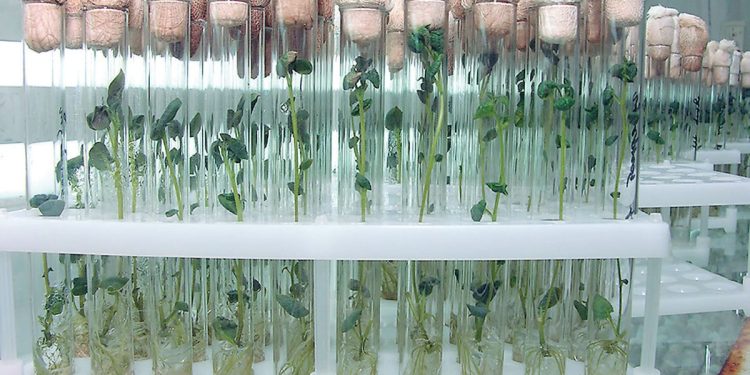The Kurgan Agricultural Academy has developed a technology for microclonal propagation of potatoes, which allows you to breed super-elite quality potato seeds, clearing plants of viruses and diseases, and significantly increase yields, said Valentina Kosova, associate professor of the Department of Ecology, Crop Production and Plant Protection of the KSAAA.
“Potatoes are the second bread. One of the main reasons for the low yield of potatoes in the Kurgan region is the use of low quality seed material contaminated with infectious phytopathogens (usually viruses). Plants accumulate pathogenic load. The method of simple selection of tubers, which is used by small farms and summer residents, causes the degeneration of potatoes. Therefore, the average yield in the region remains low – 13-15 tons per hectare. In our conditions, the yield can reach 25-30 tons per hectare, ”Ura.ru reports her words.
According to Kosova, the method, based on the ability of plants to recover from a small particle, consists of several stages. At the first stage, scientists select the source material (the upper part of the potato sprouts), checking it for the presence of bacteria, viruses and other pathogens. Healthy material is placed in a sterile nutrient medium in a test tube.
Later, after 20-40 days, a microplant grows in the test tube. Further, this plant is divided into separate fragments (replicated) and rooted again in a nutrient medium. “The nutrient medium contains macro- and microsalts, sucrose, vitamins, phytohormones, agar-agar. The nutrient medium must be sterilized, and all manipulations are carried out in sterile rooms. In six months, you can get 10-15 thousand test-tube plants of the same potato variety,” the scientist added.
According to Kosova, the next step was the adaptation of the plant to open ground conditions. From the test tube, the plant is transferred to greenhouses. “It just seems that plants in test tubes are pampered, unable to adapt easily. In fact, plants grown in vitro have enhanced growth and development, and the pathogen load has been removed from them. These are absolutely healthy plants – they adapt very well to open ground conditions, grow well and yield,” the head of the laboratory explained.
Kosova named the advantages of clonal propagation of potatoes in comparison with the traditional method – it is possible to obtain genetically homogeneous planting material, year-round production of plants regardless of the season, saving space and resources needed for growing planting material, a high reproduction rate.
As Svetlana Sukhanova, vice-rector for scientific work of the KSCA, emphasized that this year and the conditions in which our region found itself showed a high need for domestic seed material.
“Technology that allows you to quickly replicate a large number of seed potatoes is relevant and important in our time. We have prepared a program, presented it at the regional level and to the Ministry of Agriculture, the initiative has been approved. Laboratory equipment was purchased, the premises are being renovated. Employees are trained at the Tatar Research Institute of Agriculture. An agreement will be signed with him for the transfer of domestic licensed potato varieties, so that in the future the KSAAA could act as a seed farm for the production and sale of potato varieties of this research institute,” she noted.







